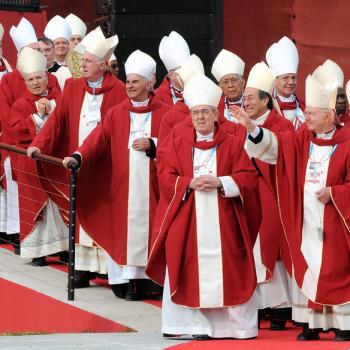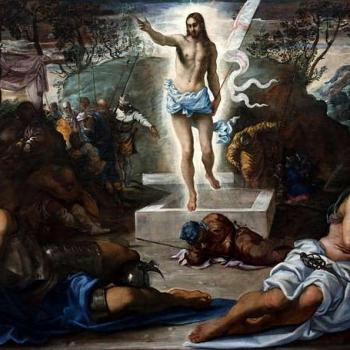We had an interesting discussion about the post a few days ago about how the blind Puritan poet John Milton contributed more new words to the English language than anyone else. Some people asked questions along the line of “how come he can make up new words and I can’t?” Or “how come he can use words as different parts of speech and my mean old English teacher marked me down every time I tried it?” It was also observed that new words are entering the English language all the time. I realized that the process of coming up with new words is not generally understood. So I will put on my English professor hat and explain. . . .
First of all, there needs to be a need for a new word, a “semantic space” in the language that needs to be filled. Let’s use some of Milton’s words as examples. His day, like ours, had a lot of “worship wars” in the Church of England. The word “liturgy” existed. But, earlier, that was pretty much the only kind of worship there was. There was a need for an adjectival form of that word to distinguish that type of worship from the alternatives. So Milton turned the existing noun into an adjective by adding a Latin adjectival ending. Hence a new word that we use today in our own worship wars: “liturgical.”
An even better, because more poetic, example: The new Copernican cosmology meant that the earth and the planets spin around in a vast void. In
Paradise Lost, Milton needed to write about Satan flying to earth. Dante in the Middle Ages had imagined Hell as existing in the center of the earth. Milton imagines it more like another planet. The word “space” existed to refer to expanse, area, extent. Milton took that word and made it refer to the realm beyond earth’s atmosphere. Satan flew through “space.” What great poetry! Imagine hearing that poetic image for the first time. But now we have a new word, one that names something that was nameless before.
This process still continues. New inventions require new words. Like Milton, we to this day tend to go back to the classical languages for help in coining them. “Computer” is from the Latin. “Telephone” and “Television” are from the Greek. (This is why it is so helpful to learn Latin. You can decode just about any English “hard word.”) “Internet” combines a venerable English word “net,” associated with the already metaphorical “network,” to describe poetically a complex set of interconnections. Then was added the Latin preposition “inter.” Voila. We have a new word. “Facebook” combines two existing words into a new one. “Google” takes a whimsical name for a really big number for a company, and then it was morphed into a verb.
It isn’t always clear who the mute inglorious Miltons were (name that allusion) who first came up with the new words that come into existence today. But the process goes back to Adam: God brought creatures to Adam, whereupon he named them.












